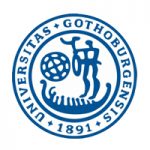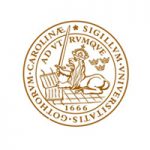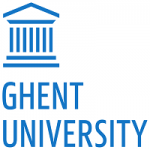项目介绍
The University of Gothenburg tackles society’s challenges with diverse knowledge. 56 000 students and 6 600 employees make the university a large and inspiring place to work and study. Strong research and attractive study programmes attract researchers and students from around the world. With new knowledge and new perspectives, the University contributes to a better future.
At the Department of Earth Sciences, we have ca 80 employees (10 are PhD students) who work in the fields of Physical Geography, Ecosystem Sciences, and Geology. We have specializations in regional climate, polar climate, paleoclimate, urban climate, alpine and polar ecology, GIS and remote sensing, hydrogeology, geophysics, quaternary geology, and micro-geochemistry. Our three priority research themes are “Climate and Climate Change”, “Earth Surface Processes” and “The Geosphere”. The Department is well-equipped with a unique Ice Lab, several DJI drones, and biogeochemical analysis labs.
Our mission is to develop and deliver research, education, and services to society that improve our understanding of how the Earth System functions and the impact of human actions in particular. Our department works to achieve diversity in the workplace and to create a family-friendly environment, and in addition, Sweden has generous family leave and childcare policies. Further information is available on our website: https://www.gu.se/en/earth-sciences
General information about being a doctoral student at the University of Gothenburg can be found on the university’s doctoral student pages.
Project description
Tundra vegetation is being impacted by extreme climatic changes now influencing much of the Arctic. Increased temperatures, change in season length, and altered precipitation patterns affect plant health, biomass, and species composition. Satellite data are used to observe changes in tundra vegetation, and hyperspectral data have the potential to provide detailed insights into tundra vegetation’s biochemical and biophysical properties.
This PhD project aims to determine the utility of newly available hyperspectral satellite data to better understand and quantify biochemical and biophysical properties of tundra vegetation negatively impacted by changing climatic conditions. The study areas will be located in the Swedish tundra area. Research questions to be addressed are, for example, can biochemical and biophysical properties of tundra vegetation associated with a drier and warmer climate be detected using hyperspectral satellite data? Can hyperspectral satellite data be used to detect tundra plant diversity? Is there a benefit to synergistic use of hyperspectral data from, for example, the EnMAP satellite together with Sentinel-2 data?
The student will be placed at the Department of Earth Sciences. This PhD position is financed primarily by the Swedish National Space Agency. The PhD student’s specific research questions and approaches will be developed in collaboration with the supervisory team at the start of the PhD project.
Duties
The main task is to conduct the PhD thesis work under supervision, which includes development of the PhD student’s methodological experience, analytical skills, as well as theoretical depth and breadth. The studies will include field work, lab work, and computer-based analysis.
A range of tools and techniques will be used in this project. The successful candidate should have a background in remote sensing theory and practical data analysis. Experience in other techniques needed for this study is meritorious, although training will be provided and the student should be active and willing to learn these new skills.
Specific tools and techniques that may be included in the research project include:
- Remote sensing data collection, processing, and analysis at multiple scales, including terrestrial, UAV, and satellite data, with emphasis on hyperspectral sensors
- Lab-based chemical analysis of plant material
- Field inventory of tundra vegetation
- Geospatial data analysis including machine learning
- Multivariate statistics
- Writing scripts (e.g., using Python or R) for data processing and analysis
Education at third-cycle level comprises four years of full-time study, and leads to a doctoral degree in Natural Science, specializing in Physical Geography.
Within the framework of your doctoral student employment, you may have departmental duties corresponding to up to 20 % of full-time employment, distributed throughout your study period. Departmental duties usually consist of teaching at first- and second-cycle levels, but may also include administration.
Eligibility
Education at third-cycle level requires general eligibility and, where appropriate, specific eligibility as set out in the general syllabus for the subject.
The general eligibility requirements for education at third-cycle level are:
- having completed a degree at second-cycle level, or
– the fulfilment of course requirements totaling at least 240 credits, of which at least 60 credits must be at second-cycle level, or - the acquisition of equivalent knowledge in some other way, either in Sweden or abroad.
To meet the specific entry requirements for third-cycle studies, applicants must:
- have a second-cycle (advanced-level) degree in a relevant* subject area in the natural sciences, or
- have completed studies for at least 60 higher education credits at a second-cycle level in relevant* subject areas in the natural sciences, or
- have completed a corresponding programme of relevance to the planned third-cycle programme, in Sweden or in another country, or have equivalent qualifications.
*Relevant subjects for the planned education is physical geography or a closely related field (e.g., geography, environmental science, geology) if these include substantial components of physical geography. If you are very near completion of your second-cycle (Master’s degree) you may apply to this position, as you may be finished when the position will begin.
Assessment criteria
The following assessment criteria will be applied in selection among applicants:
- merits from basic education
- credentials from the advanced level education claimed in special qualifications
- the relevance of the previous education for the planned education at postgraduate level
- assessment of the applicant’s ability to assimilate postgraduate education
- where applicable, assessment of the applicant’s ability to work within a research group
The assessment of candidates will further be based on the following essential and advantageous attributes:
Essential attributes:
- Completed university course(s) or equivalent experience that included remote sensing theory and analysis of remote sensing data
- Good knowledge of quantitative methods through university courses that include statistics or data analysis
- Good ability to communicate orally and in writing in English
- Interest and opportunity to perform field work in the tundra environment during the vegetation period
Advantageous attributes:
- Experience of multispectral and/or hyperspectral satellite data processing and analysis
- Completed university course(s) which included GIS, climate data analysis, and/or plant ecology
- Knowledge of plant physiology
- Experience flying drones or willingness to learn
- Knowledge of scripting/programming (e.g., Python, R)
- Previous work with or knowledge about tundra vegetation
Employment
Once you have been admitted for education at third-cycle level, you will be employed as a doctoral student at the University of Gothenburg. The provisions for employment as a doctoral student can be found in ordinance SFS 1993:100.
Initial employment as a doctoral student may apply for a maximum of one year, and may be renewed by a maximum of two years at a time. A doctoral student may be employed as a doctoral student for a maximum of eight years, but the total period of employment may not be longer than the equivalent of full-time education at third-cycle level for four years.
Location: Department of Earth Sciences. Extent:100%. First day of employment: 2024-10-01 or upon agreement.
The University applies a local agreement on salaries for doctoral students.
Contact information
Heather Reese (main supervisor), Department of Earth Sciences, University of Gothenburg, heather.reese@gu.se, phone: +46 (0)31 7862803
Hans Linderholm (Department head), Department of Earth Sciences, University of Gothenburg, Hansl@gvc.gu.se, +46 (0)708 58 95 04
Information for International Applicants
Choosing a career in a foreign country is a big step. Thus, to give you a general idea of what we and Gothenburg have to offer in terms of benefits and life in general for you and your family/spouse/partner please visit:
https://www.gu.se/en/about-the-university/welcome-services
https://www.movetogothenburg.com/
Unions
Union representatives at the University of Gothenburg can be found here:
https://www.gu.se/om-universitetet/jobba-hos-oss/hjalp-for-sokande
Application
You can apply to be admitted for education at third-cycle level via the University of Gothenburg’s recruitment portal.
It is your responsibility to ensure that the application is complete as per the vacancy notice, and that the University receives it by the final application deadline.
The application should be written in English and must include:
- A short cover letter with the applicant’s justification for the application, i.e., that describes how the applicant meets the selection criteria
- An attested list of qualifications (CV)
- Examination certificates and a transcript of courses with grades
- A copy of the Master thesis (or equivalent)
- Employments certificates and other documents deemed important by the applicant
The top ranked candidates will be selected for an interview, which might be held in English and could also be performed by Zoom.
The application must be received by: 2024-06-09
联系方式
电话: +46 31-786 00 00相关项目推荐
KD博士实时收录全球顶尖院校的博士项目,总有一个项目等着你!






